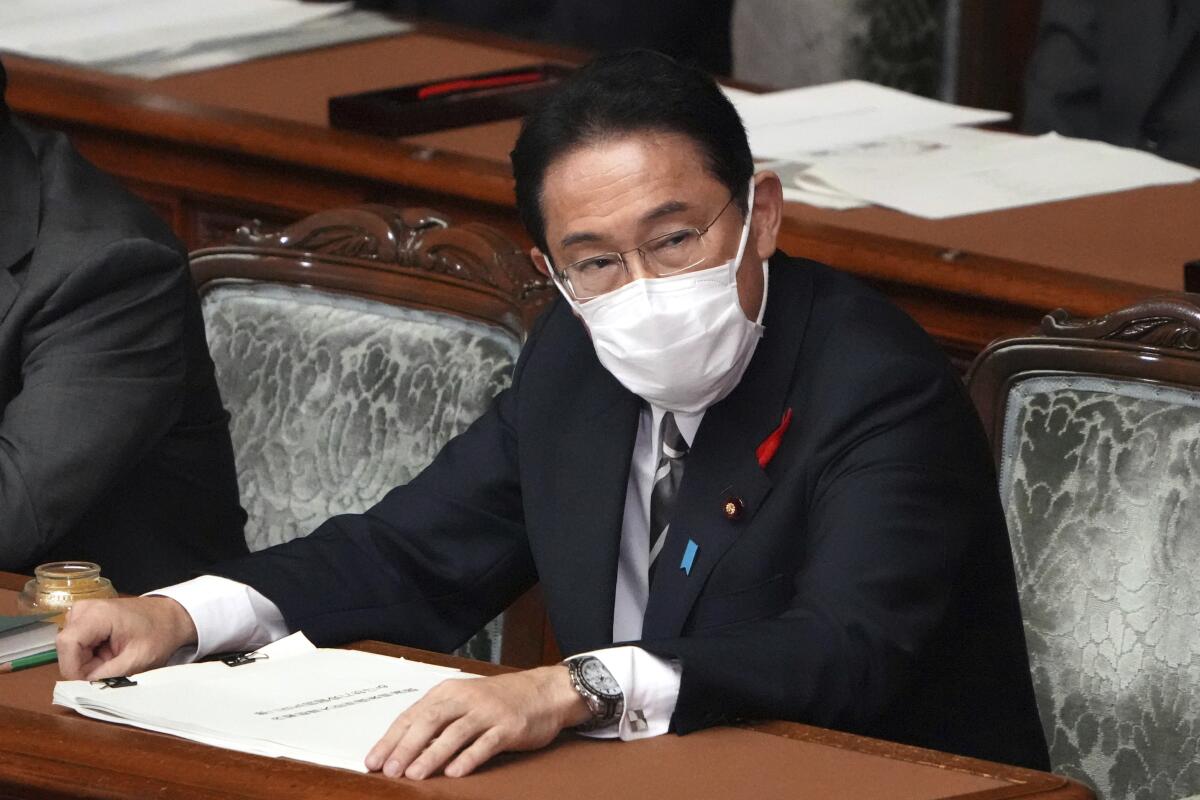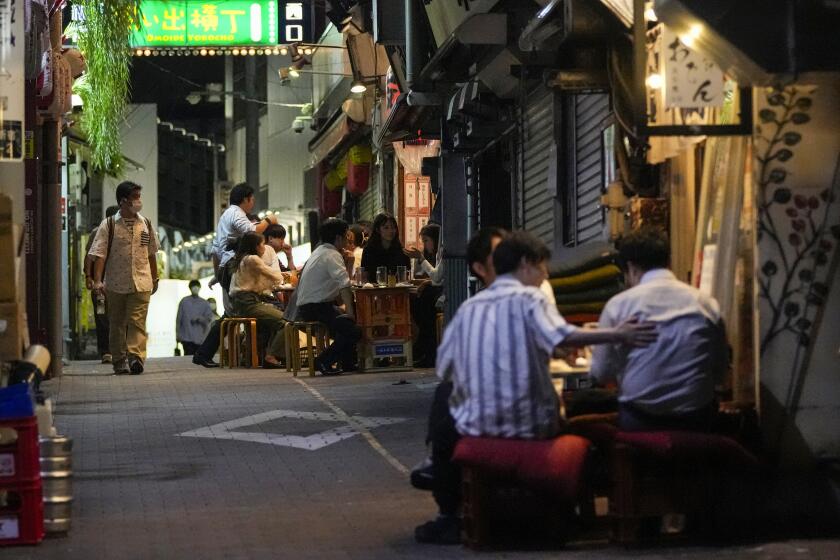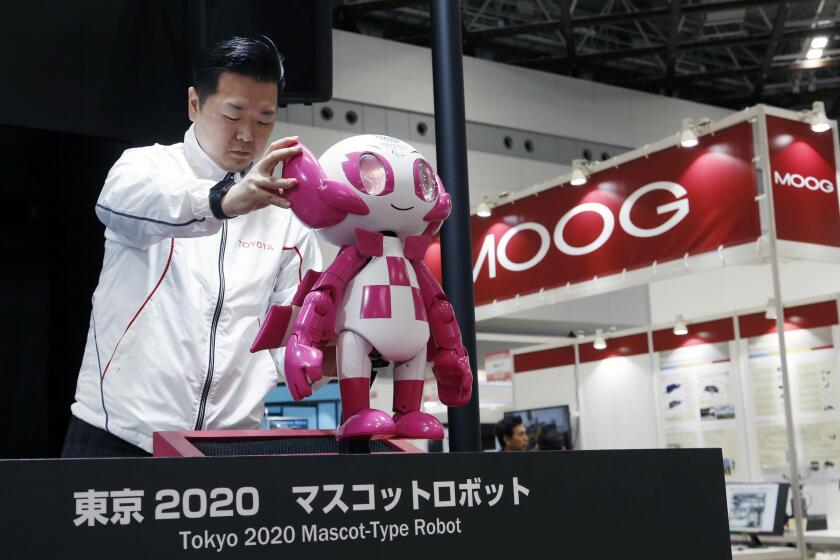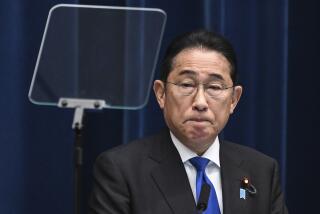Kishida vows to lead Japan with ‘trust and empathy’ amid the ongoing pandemic

- Share via
TOKYO — In his first policy speech, new Prime Minister Fumio Kishida promised to improve Japan’s pandemic management and healthcare system in case of another coronavirus resurgence, turn around the country’s battered economy and bolster its defenses against threats from China and North Korea.
Tasked with a crucial mission of rallying public support ahead of national elections expected Oct. 31, Kishida promised to pursue politics of “trust and empathy.”
He was sworn in Monday as Japan’s 100th prime minister, succeeding Yoshihide Suga, who left after only a year in office. Suga’s perceived high-handed approach to coronavirus measures and insistence on holding the Tokyo Olympics despite rising COVID-19 cases angered the public and hurt his ruling Liberal Democratic Party.
“I will devote my body and soul to overcome the national crisis together with the people to pioneer the new era so that we can pass a bountiful Japan to the next generation,” said Kishida.
He promised to be more attentive to public concerns and needs, and to prepare coronavirus measures based on “a worst-case scenario.” That includes taking advantage of a drop in infections to improve crisis management before the weather turns cold, approving COVID-19 treatment pills by the end of December and digitalizing vaccine certificates for use at home as Japan gradually tries to expand social and economic activity, Kishida said.
A former moderate who recently turned hawkish on security issues, he said Japan should also increase preparedness for growing regional threats.
The Japanese government says its nationwide coronavirus state of emergency will end Thursday in order to help revive the economy as infections slow.
He said that the security environment had become more worrisome and that he would revise Japan’s national security and defense strategy to bolster missile-defense capability and naval defense.
“I’m determined to defend our land, territorial seas and air space, and the people’s lives and assets, no matter what,” Kishida said.
The Japanese-U.S. alliance remains the linchpin of Tokyo’s diplomatic and security policies, he said, and he vowed to further elevate the partnership, which “also serves the foundation of peace and prosperity in the Indo-Pacific region and the entire world.”
Kishida said “establishing a stable relationship with China is important not only for the two countries but also for the region and the international community.” Still, Japan, when necessary, will “speak up” against China’s unilateral and coercive activity in the region, while cooperating with other like-minded democracies, Kishida said.
Olympic visitors will likely remember not technological advances but the reams of paper forms, glitchy apps and rigid bureaucracy of Japan’s anti-COVID measures.
China has become bolder in pursuing its territorial claims in the disputed South China Sea, where it has constructed several man-made islands and turned them into military installations, as well as around the Japanese-controlled East China Sea island of Senkaku, which China also claims. Beijing also has escalated its military activities around self-ruled Taiwan, which it views as part of its territory.
North Korea’s missile and nuclear development cannot be tolerated, but Japan seeks to normalize diplomatic ties with Pyongyang by resolving the “unfortunate [wartime] past” and the decades-old issue of Japanese citizens abducted by North Korean agents, Kishida said.
Kishida reiterated that he is ready to meet North Korean leader Kim Jong Un to work toward a breakthrough in relations.
Kishida repeated the policy goals he made during the recent governing party leadership race, and pledged to achieve “a positive cycle of growth and distribution.”
He said he seeks to promote growth by investment into cutting-edge research and development and promoting digitalization to modernize bureaucracy, services and industries, while encouraging companies to hike wages. He also wants to step up government support for education and living costs. Many experts, however, are skeptical of whether income increases are possible.
Kishida said he hopes to heal divisions caused by the pandemic, which has worsened the gap between Japan’s rich and poor.
More to Read
Sign up for Essential California
The most important California stories and recommendations in your inbox every morning.
You may occasionally receive promotional content from the Los Angeles Times.












